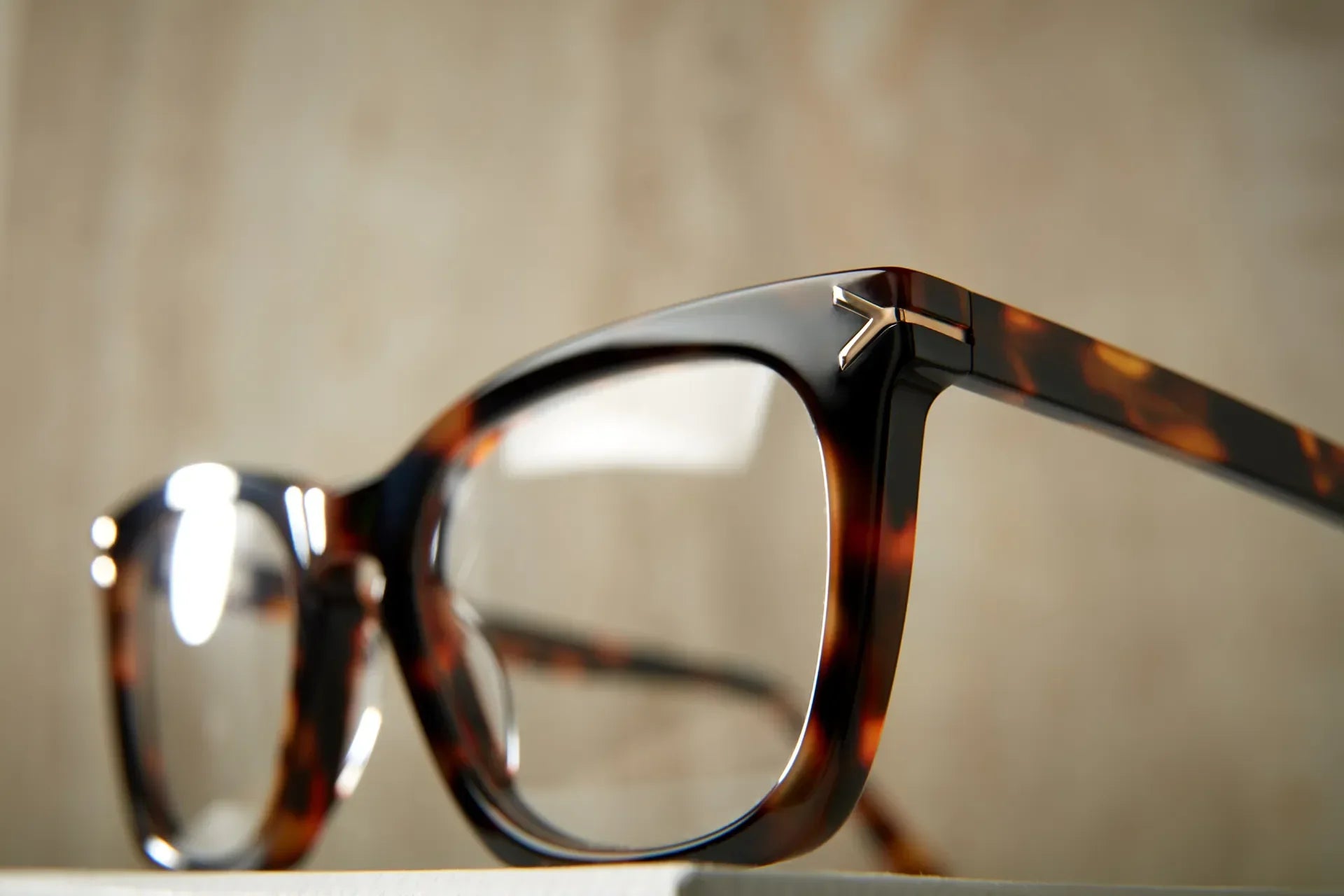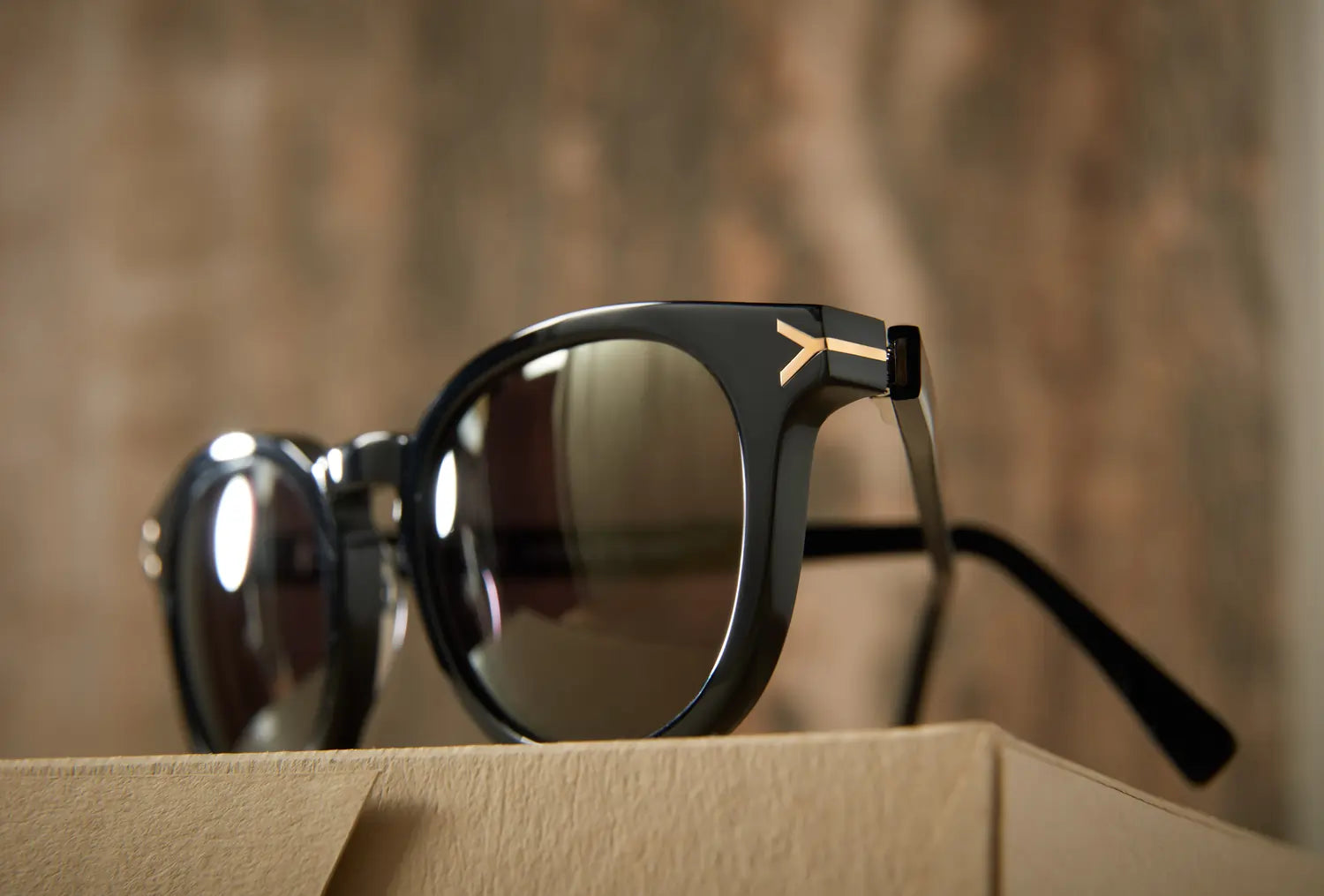Polarised vs Non-Polarised Sunglasses: Exploring the Differences
When it comes to protecting your eyes from the sun's harmful UV rays and reducing glare, choosing the right pair of sunglasses is crucial. But with so many options on the market, you might find yourself asking: are polarised sunglasses better? And are polarised sunglasses worth it?
In this blog, we’ll delve into the differences between polarised and non-polarised sunglasses, their functionalities, and the scenarios in which each type is best used. Struggling to know what types of sunglasses to go for this summer? Read on to find out more with the help of our experts at Yoovy.
What Are Polarised Sunglasses?
Polarised sunglasses are designed with a special filter that blocks intense reflected light, reducing glare. This filter is usually a chemical coating applied to the lens, which works by absorbing horizontal light waves while allowing vertical waves to pass through. This reduction in glare makes polarised lenses particularly useful in environments with reflective surfaces, such as water, snow, and glass.
What Are Non-Polarised Sunglasses?
Non-polarised sunglasses, on the other hand, are simply tinted lenses that reduce the overall brightness and provide UV protection. They do not have the special filter that polarised lenses do. While they can effectively protect your eyes from harmful UV rays and reduce some glare, they do not offer the same level of glare reduction as polarised lenses.


How Does Polarisation Work?
Many people find it difficult to know whether to go for polarised or non-polarised glasses because they aren’t quite sure what the difference is. But once you get your head around it, the technology behind polarised sunglasses is quite impressive. Light waves travel in various directions, and when sunlight reflects off horizontal surfaces like water, roads, or snow, it tends to become horizontally polarised, creating intense glare. Polarised lenses have a vertically oriented filter that blocks these horizontal waves. This filter allows vertical light to pass through, which significantly reduces glare and improves visual clarity and comfort.

The Benefits of Polarised Sunglasses
There are a range of benefits that make polarised sunglasses particularly advantageous in certain situations. From enhanced clarity to increased safety, let’s take a closer look at the benefits.
- Improved Visual Comfort: By reducing glare, polarised lenses can make it easier to see in bright conditions without squinting.
- Enhanced Clarity and Contrast: Colours appear more vivid, and details are sharper.
- Reduced Eye Strain: Less glare means your eyes do not have to work as hard, reducing fatigue.
- Increased Safety: For activities such as driving or boating, reduced glare can improve reaction times and overall safety.
The Benefits of Non-Polarised Sunglasses
So are polarised sunglasses better? Not necessarily! There are benefits to wearing non-polarised sunglasses too.
- Adequate UV Protection: Non-polarised sunglasses provide essential protection against harmful UV rays, safeguarding your eyes.
- Cost-Effective: They are generally more affordable than polarised sunglasses which makes them a popular choice for many.
The Benefits of Non-Polarised Sunglasses
When it comes to common questions such as ‘Are polarised sunglasses better?’ and ‘Are polarised sunglasses worth it?’ The answer largely depends on the instances when you’ll wear them. This is because polarised sunglasses excel in scenarios where glare is a significant issue. Here are some specific use case examples:
- Water Sports: Activities like fishing, boating, or any water-based sports greatly benefit from polarised lenses as they reduce the glare reflecting off the water surface.
- Driving: Polarised sunglasses can significantly reduce the glare from the road and other vehicles, enhancing safety and comfort.
- Snow Sports: When skiing or snowboarding, polarised lenses can cut through the glare from the snow, improving visibility and performance.
- Beach Activities: The sand and water at the beach can create intense glare, making polarised sunglasses a better option for beachgoers.
Things to Consider When Buying Sunglasses
Still undecided on whether to get polarised or non-polarised sunglasses? Well here are some important factors to consider.
Intended Use
Before making your decision you should think about how and where you will be using your sunglasses most frequently. If you spend a lot of time outdoors in bright, reflective environments, polarised sunglasses may be worth the investment. For more general use, non-polarised sunglasses may be enough for what you need.
Personal Preference
It’s important to remember that comfort and visual clarity are different for everyone. So even if someone you know has told you all the benefits of their polarised sunglasses, that doesn’t mean that you’d find them as beneficial.
Budget
As mentioned earlier, polarised sunglasses tend to be more expensive due to the additional technology involved. For this reason, many individuals see polarised sunglasses as a worthwhile investment as they need extra glare reduction.
However, non-polarised sunglasses, which are typically more affordable, still offer essential UV protection and can be a practical choice for many.
Are Polarised Sunglasses Worth It?
In conclusion, when asking whether polarised sunglasses are better or if polarised sunglasses are worth it, the answer depends on your specific needs and lifestyle. Polarised sunglasses offer superior glare reduction and enhanced visual clarity, making them ideal for activities involving reflective surfaces.
Non-polarised sunglasses, while not as effective at reducing glare, still provide essential UV protection and can be more versatile and budget-friendly.
Ultimately, the best sunglasses for you will be the ones that offer the protection, comfort, and functionality you need for your daily activities. Remember that your glasses should be unique and bespoke to you!
Written by

Paula Burrows
Optometrist
Paula is the Optical Director at Yoovy and is responsible for our lab team to verify prescriptions and ensure your lenses are produced, assembled and quality checked before we despatch them to you.





